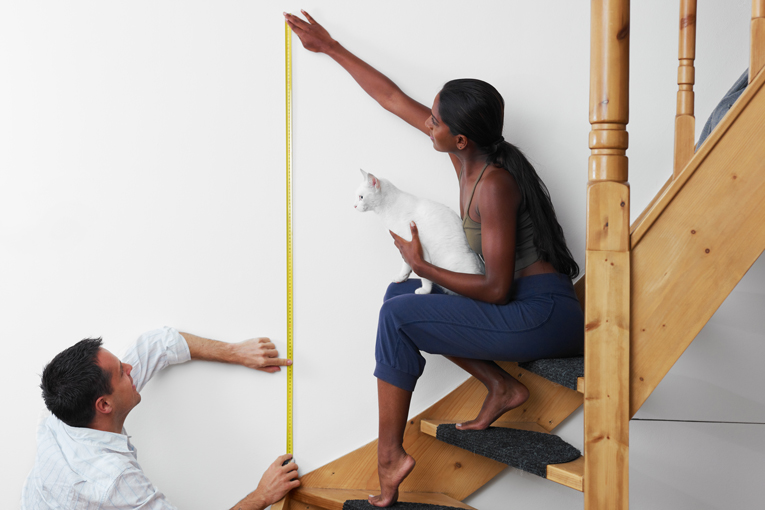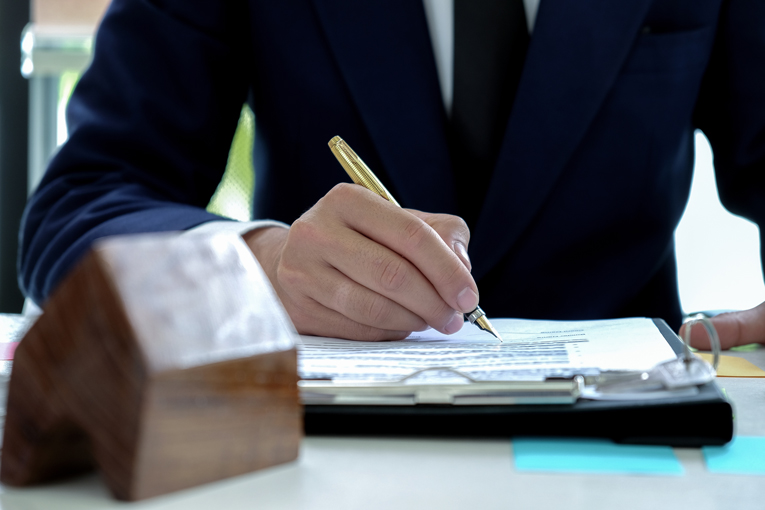Hidden dangers of DIY conveyancing!

Purchasing a house can be one of life’s milestones. Nevertheless, it can also be an extremely stressful event, not to mention time-consuming as well.
Naturally, you may be inclined to cut corners or skip specific processes to save a few quid. However, you could end up leaving yourself liable to problems or even additional legal fees.
Read on for all you need to know about conveyancing, conveyancing costs and the dangers of doing it yourself!

What is fixed fee conveyancing?
Fixed fee conveyancing is also known as fixed price or flat rate conveyancing. It is what the name implies – receiving services in exchange for a pre-agreed amount.
It is a relatively convenient way of pricing in the UK but check with your conveyancing solicitor as some still choose to charge at an hourly rate.
A flat-rate fee is often preferential as it enables the client to anticipate costs and not be surprised by a big bill at the end of the process.
Before hiring a conveyancer, make sure you clarify whether they will charge an hourly rate or can agree a fixed fee. You should also be aware that the flat-rate fee is the cost of legal services.
This may not include all third-party costs. Therefore, you should also ask for an additional quote for disbursements so you can budget accordingly.
How much can I expect to pay for conveyancing?
We recommend employing a registered conveyancer to undertake all legal work on your behalf. Their fees will often depend on the sort of property you are purchasing (for example, whether it is leasehold or freehold) and also the overall price of the property.
A conveyancer will generally advise of a fixed fee or a fee calculated on the percentage of the property price.
When will I need to pay for conveyancing services?
Ordinarily, a conveyancer will expect part-payment when you request their assistance. This preliminary payment is known as ‘holding on account’ and is to cover any initial costs.
You will need to pay the remainder of the monies owed before completion of the property purchase.
A conveyancer will send you a ‘completion statement’. This will detail all the costs incurred along with the balance owed before ownership will be legally transferred to you.
What about the costs of searches?
When selling a property, ensure that your fixed fee quote includes:
- The legal fees charged by the conveyancing solicitor
- A fee for copies of the required documents from The Land Registry
- A bank transfer fee
When purchasing a house, the searches involved are far more extensive, and therefore this can impact on the costs for conveyancing.
Hence, these costs for searches, information and checks are known as disbursements. They are a critical aspect of purchasing a house, and the results will be required by your mortgage provider or lender. They may also affect the potential future value of your property.
The searches needed will likely include:
- Local authority searches
- Land registry searches
- Environmental searches
- Water-authority searches
- Location-specific searches
- Chancel repair searches
Many of the searches will cost in the region of £150-£200, but this will vary based on any necessary legal work and the costs of the law firm itself.

What about DIY conveyancing?
Do It Yourself conveyancing is when a seller or buyer carries out the conveyancing procedure themselves. This will include completing all searches and enquiries that are required for the purchase or sale of the land or property and drafting the relevant contracts.
The benefits of DIY conveyancing
There is no requirement for someone to have a legal background to carry out conveyancing. The Land Registration Act allows self-conveyancing by individuals.
You may be inclined to do it yourself to save money, but it will involve much time, patience, and dedication. You will need to fulfil all the steps taken by a qualified conveyancer to undertake this job properly.
One main draw to DIY conveyancing is the speed it can be done when you are either determined or under a tight timeframe. While it is not an easy process, most standard search forms are available from legal stationers.
Self-conveyancing will be cheaper than hiring a qualified expert as money can be saved on fees and agents costs. However, if you are unsure, it is worth weighing up the money you may save versus the substantial costs of hiring an expert to fix any errors you may have made.
The drawbacks of DIY conveyancing
1. Are you prepared to take the risk?
Self-conveyancing can be a risky process. Consequently. you are personally liable if you make a mistake or things go wrong.
A minor error could leave you open to being sued by the other party. A significant error can result in you being liable for large compensation pay-outs.
A layperson carrying out conveyancing will unlikely have appropriate insurance. However, when hiring an expert, in the unlikely event they make a mistake, they will be liable, not you.
2. It can be quite time-consuming
Conveyancing is a very time-consuming and labour-intensive process. If you are working full time or have a family to look after, then adding more to your plate may be an unappealing concept.
An average house sale takes at least 6-8 weeks to finalise. There are also countless forms and documents to complete.
3. Are you familiar with legalese?
Even the most highly educated people can struggle with the verbose language found in legal contracts and documents. Therefore, mistakes are not uncommon if you are unfamiliar with what you are doing or if you lack legal expertise.
4. When not to attempt DIY conveyancing
There are some scenarios when we do not recommend self-conveyancing, and these include:
Buying and Selling
- when you are also dealing with other major life events. This could include while divorcing
- an unregistered, leasehold or commonhold property
- a property that is anything other than a house
- only part of a property (for example, selling a portion of your land)
- at auction
Conclusion
It is always great to save money and have the satisfaction of achieving something new. However, when the risks are high, and the activity is inordinately complicated and time-consuming, it may not be worth the gamble.
When dealing with legal contracts, conveyancers use all their years of expertise and knowledge. Some buying or selling situations can be extraordinarily intricate and – if you lack the necessary knowhow – extremely problematic.
If you are looking to buy or sell a property and are considering doing the conveyancing yourself, then contact one of our experts today. Not only will it not be as expensive as you may fear, but the burden of worrying about errors and being open to negligence claims will be fully taken off your shoulders.
Call one of our specialist conveyancing solicitors without delay.
Do you need a solicitor?
Find a solicitor on Qredible in just a few easy steps















